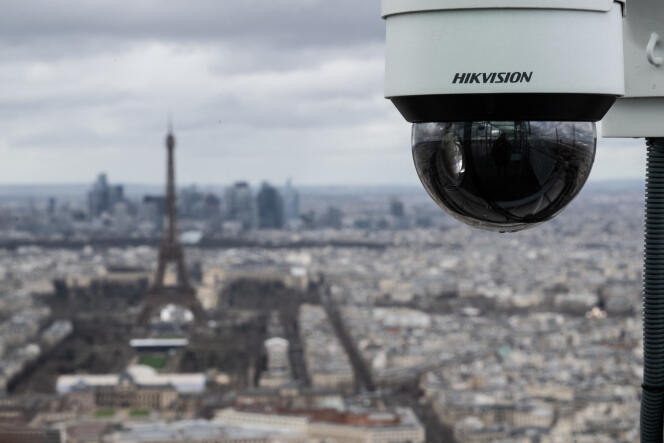


After the legal debate, it's time for technical testing. Nine months after the Olympic Games law was enacted, with its article 10 allowing for experimentation with algorithmic video surveillance, French police officers will be testing this new technology – which is supposed to automatically detect a specific number of abnormal situations – for the first time. A trial run is scheduled for Sunday, March 3 and Tuesday, March 5, in conjunction with two concerts by the British band Depeche Mode in Paris.
The French interior ministry, as reported by Agence France-Presse (AFP), has announced that six cameras powered by software created by the Wintics company, Cityvision, will be scanning the public thoroughfares in the vicinity of the Bercy Arena concert hall in Paris' 12th arrondissement, where the concerts are set to take place. According to the same source, the aim will be to "test and configure software solutions" instead of using algorithmic video surveillance per se. One of the law's provisions is indeed for this system to be so tested before its actual use, which dispenses the police from the need for a prefectoral decree authorizing its application.
This first test will kick-start a period that has been much-awaited by the tech industry, which has long complained that their video surveillance image analysis solutions cannot be sufficiently tested in real-life situations, and that they therefore could not take fully take advantage of this market that overlaps with video surveillance. Their voices were heard by those who drafted the Olympics law: The bill clarified the legal framework applicable to so-called "augmented" video surveillance and authorized them to deploy their solutions for a stated period, which encompasses the Olympic and Paralympic Games and is set to run until March 31, 2025.
A decree adopted during the summer specified the type of events that algorithmic video surveillance software would look out for: The presence of abandoned objects, the presence or use of weapons, dangerous crowd movements, outbreaks of fire, harmful falls, "non-compliance by a person or a vehicle of the common direction of traffic," "the crossing or presence of a person or vehicle in a prohibited or sensitive area" and an "excessive density of people."
While automated video surveillance analysis software has never proved its effectiveness until now, companies in the sector have hoped to be able to convince public authorities. This trial run would make it possible to "experimentally test a new application that has already proved its worth for statistical purposes. The technology has already proved its capabilities. What's new is the ability to send an alert to a command post," claimed Matthias Houllier, Wintics' co-founder.
You have 45.51% of this article left to read. The rest is for subscribers only.
